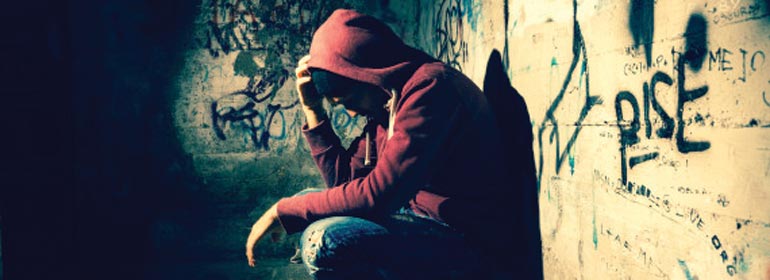Our young LGBT people will probably never forget the turmoil of this referendum campaign, and the outpouring of vitriol that has surrounded it, says Nathan O’Donnell.
Over the past six weeks, I and a handful of other writers have been leading creative writing workshops with a group of LGBT young people aged between 17 and 20 at the Big Smoke Writing Factory on Dollard Quay. This free project, Inverse, was designed for young people at a formative time in their lives, giving them new skills, providing them with positive narratives of LGBT identity, and encouraging their creative expression and development.
Eleven young people signed up, from all around Dublin, and made it in every Saturday morning to participate. There were no boundaries set upon what they could write about. Certainly there was no requirement for them to write about their own sexual or gender orientation. We simply wanted to provide a safe and welcoming environment for young people, at a potentially difficult point in their development of adult identities, to express themselves imaginatively.
One theme did come to dominate very quickly, however. It was impossible, given the timing, that the Marriage Equality referendum should not feature heavily, but the extent to which it pre-occupied, and troubled, and upset these eleven bright young people was startling. The sense of a psychic toll upon these teenagers, as a result of this referendum campaign, was palpable and sometimes difficult to witness. That these young people – and the many more like them across Ireland – should have to endure the public airing of sanctioned discrimination against them feels utterly unjust.
Torrents of Verbal Abuse
I was not so upset, at 17 or 18 years of age, about my rights. To be honest I had no sense of my rights, my equality. I actually just never felt I belonged in the society I’d be born in. As such, I never felt I deserved any better. I didn’t even think ‘any better’ was a possibility. Like any LGBT young person at that time, 15 years ago, I came to accept regular torrents of verbal abuse on the street as simply part of life. Once these torrents didn’t escalate to physical violence – as was always possible – I could count myself lucky.
I learnt to display a certain amount of bravura the best strategy to dispel any real threat. I had to learn these desperate strategies, alone, at a time when most young boys were fraternising, playing sports, kissing girls, growing into themselves. I’ll never forget the feeling of unadulterated agony at having my sexual orientation laughed at, or spat at, or dismissed with contempt – and not only by lads on the street.
But no matter how viscerally upsetting these experiences might be, to ignore them, or flee them, or become visibly upset by them, were not options. You simply had to acclimatise to an ever-present vein of prejudice, liable to spout at any time, even in innocuous circumstances: in the casual use of words like ‘fag’ or ‘puff’ on TV or in movies or by people around you. To be gay at that time (certainly in rural Ireland, where I grew up) meant isolation. You learned to be constantly wary. You learned to disguise your reactions. You learned to stomach whatever insults the world threw at you.
Not Ready
Listening to the group of young people who I have been working with for the past six weeks has made me realise how much things have changed. These teenagers are not ready to stomach whatever they receive. They are ready to stand up for themselves. Ireland has become more open, more accepting. And I’ve learnt to value myself too. The language of the No campaign – the use of ‘us’ and ‘them’ – brings back to me the old feelings of sudden loathing, subterfuge, futility. But the rancour of the No campaign also reminds me how far things have come. How long has it has been since we’ve heard such bile? The No campaign is harking back to an earlier manifestation of Irish society, one which most of us are happy to have seen the back of.
Many will still vote No. It is clear there are many voters out there who are unhappy with the new openness of Irish society. There are many who do not want the Constitution to reflect the changed reality in which we live. There are many who do not feel that same-sex relationships should be allowed the same value and standing as those between members of the opposite sex. There are many who do not believe that young people, like those who came together for the last six weeks to write poems, plays, and short stories, should be able to face into a future with promise, with a sense that they belong to the country in which they live.
These young people will grow up, and will manage to flourish, no matter what happens. I believe some of them will be amongst the writers of the next decades. They will fall in love; they will form families; they will have imperfect, non-ideal lives just like everybody else. They will probably never forget the turmoil of this referendum campaign, and the outpouring of vitriol that has surrounded it. Hopefully they will also remember it as the moment they were assured, as citizens of Ireland, that they also belong.
© 2015 GCN (Gay Community News). All rights reserved.
